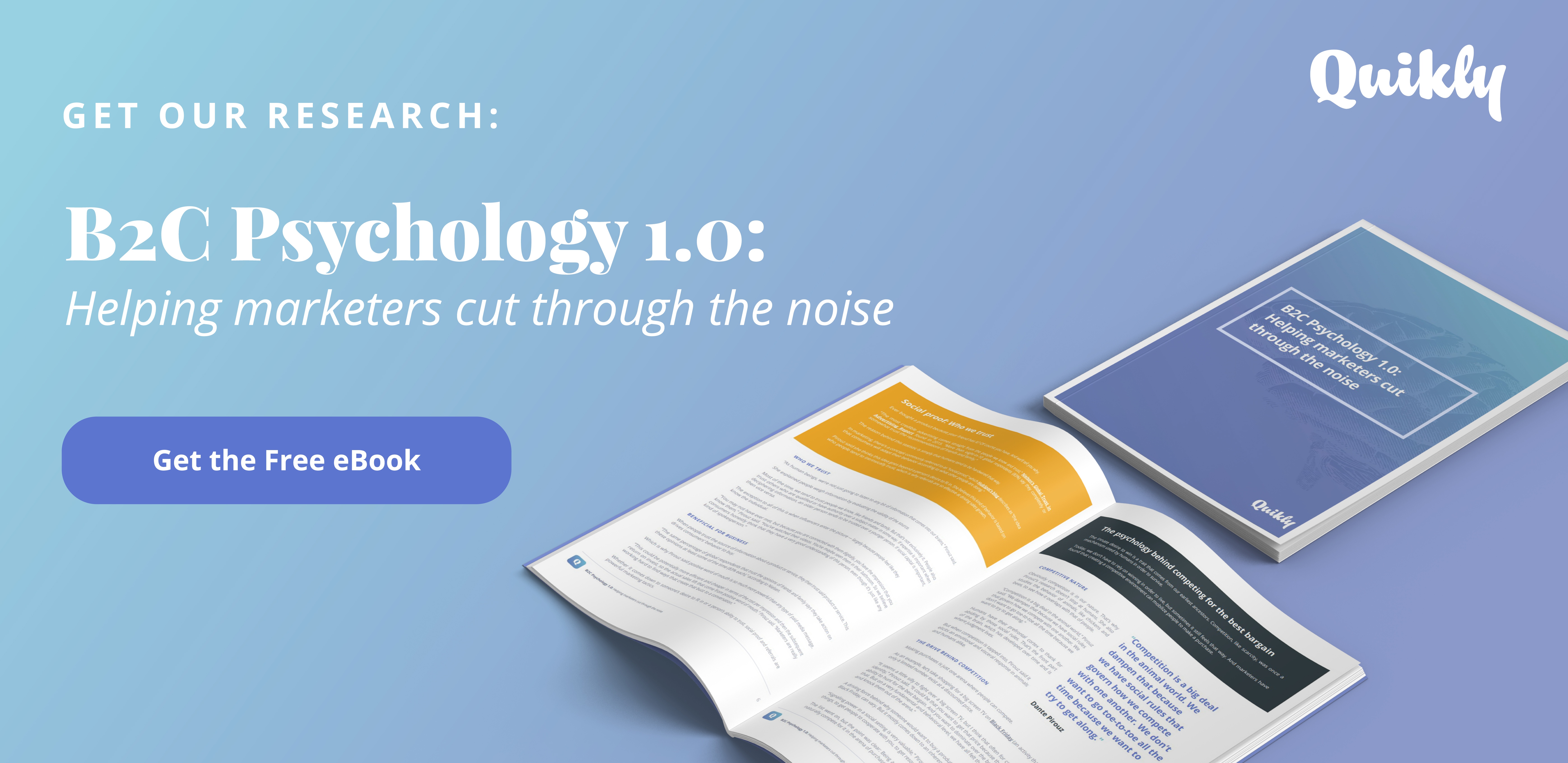
Consumer neuroscience during the coronavirus (with podcast)

As marketers, it’s important to understand what makes people tick. That’s part of the reason we started Market with Me Quikly, a podcast to inform, educate and assist B2C marketers in doing their job just a little bit better.
In previous episodes, we explored the psychology of why consumers buy. Eventually this led us to something even deeper: consumer neuroscience.
To further understand this topic and unpack how consumers are responding to a global pandemic, we talked to Dr. Matt Johnson. He's a researcher, writer and speaker, working at the intersections of neuroscience, technology and business.
He received his Ph.D. in Cognitive Psychology from Princeton University, where his dissertation focused on the neuroscience of language and communication. His research focus is now on applying this perspective to better understanding consumer experience and decision-making. He’s also the founder of the consumer behavior blog PopNeuro and the author of “Blindsight: The (Mostly) Hidden Ways Marketing Reshapes Our Brains.”
In our conversation, he offered a lot of valuable insight that can help marketers navigate doing their job during a pandemic. Here's just one:
Tell origin stories
When we asked Johnson why stories are an effective tool in marketing neurologically, he said it's difficult to pinpoint a single variable that explains our love of narratives. But he did think part of the answer lies in one interesting perspective — that of what's called "essentialism."
"This is this idea that, as humans, we tend to see sort of a secret meaning behind the objects that we interact with and the objects that we consume,” Johnson said. “So a chair isn't just a chair. It's a chair that was created by somebody. It has a story. It has an inspiration.”
And he explained there's been a lot of research suggesting stories about the origin of objects galvanize their value, proving that there is something to a backstory, “which we as strange, quirky humans, really appreciate.”
So if you’re a marketer who is thinking about telling a story around your brand or product and don’t know where to start, consider the origin and going from there.
We’re going to continue these conversations around marketing through a scientific lens. If you think you can bring some level of expertise or exciting knowledge that we wouldn’t have otherwise — please reach out.
You can email us directly at andrea@quikly.com.

Andrea Gonzales-Paul is a brand journalist at Quikly. Her background is in storytelling, specifically working in TV news and documentary filmmaking.

